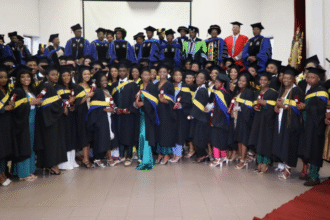Teaching Assistants Could Lessen Administrative Burden On Teachers. In South Africa’s dynamic educational landscape, teachers are increasingly overwhelmed by administrative responsibilities that detract from their primary role of educating learners. Recent research underscores the potential of teaching assistants to mitigate these challenges, enhancing both teacher well-being and student outcomes.
Administrative Strain on Educators
A study by Stellenbosch University, in collaboration with the Research on Social Economic Policy and Teacher Demographic Dividend (TDD) project, revealed that 70% of teachers identify administrative tasks as their primary source of stress. These duties, including compiling progress reports for large classes, often encroach upon valuable teaching time, leading to burnout and attrition.
Further findings from the Teaching and Learning International Survey (TALIS) indicate that South African teachers dedicate only 66% of classroom time to actual teaching, compared to 78% in other countries. The remaining time is consumed by administrative tasks and classroom management.
Role of Teaching Assistants
Teaching assistants (TAs) offer a viable solution to alleviate the administrative load on teachers. By handling non-instructional tasks, TAs enable educators to focus more on teaching and student engagement. The Department of Basic Education’s Basic Education Employment Initiative (BEEI) has been instrumental in this regard, placing thousands of youth in schools to support teachers.
In Gauteng, the provincial government extended contracts for 32,000 teaching assistants under the Nasi iSpani mass employment program. This initiative not only addresses youth unemployment but also provides essential support to educators.
Training and Development for Teaching Assistants
To maximize their effectiveness, TAs undergo comprehensive training, including orientation programs and mentorship. They receive instruction in financial management, digital literacy, and technical skills, equipping them to contribute meaningfully to the school environment.
Continuous professional development opportunities, such as workshops and on-the-job training, further enhance their capabilities, ensuring they remain valuable assets within the educational system.
Impact on Teacher Satisfaction and Student Outcomes
The integration of TAs has a positive ripple effect on the educational ecosystem. Teachers experience reduced stress levels, leading to improved job satisfaction and retention. Students benefit from increased instructional time and more personalized attention.
Moreover, TAs play a crucial role in supporting learners with special educational needs, fostering an inclusive learning environment. Their presence allows for more targeted interventions, addressing individual student challenges effectively.
Conclusion
The deployment of teaching assistants stands as a strategic approach to enhancing South Africa’s educational framework. By relieving teachers of excessive administrative duties, TAs empower educators to dedicate more time to their core teaching responsibilities, ultimately enriching the learning experience for students.










